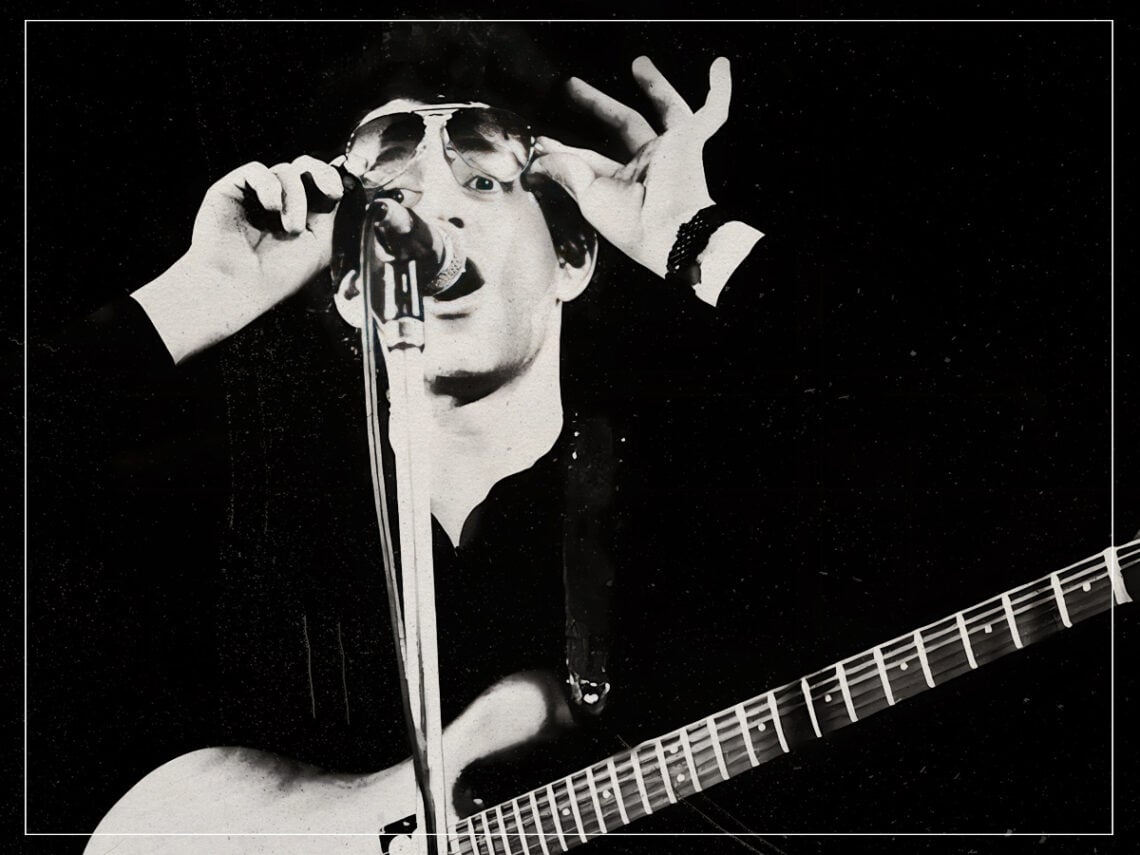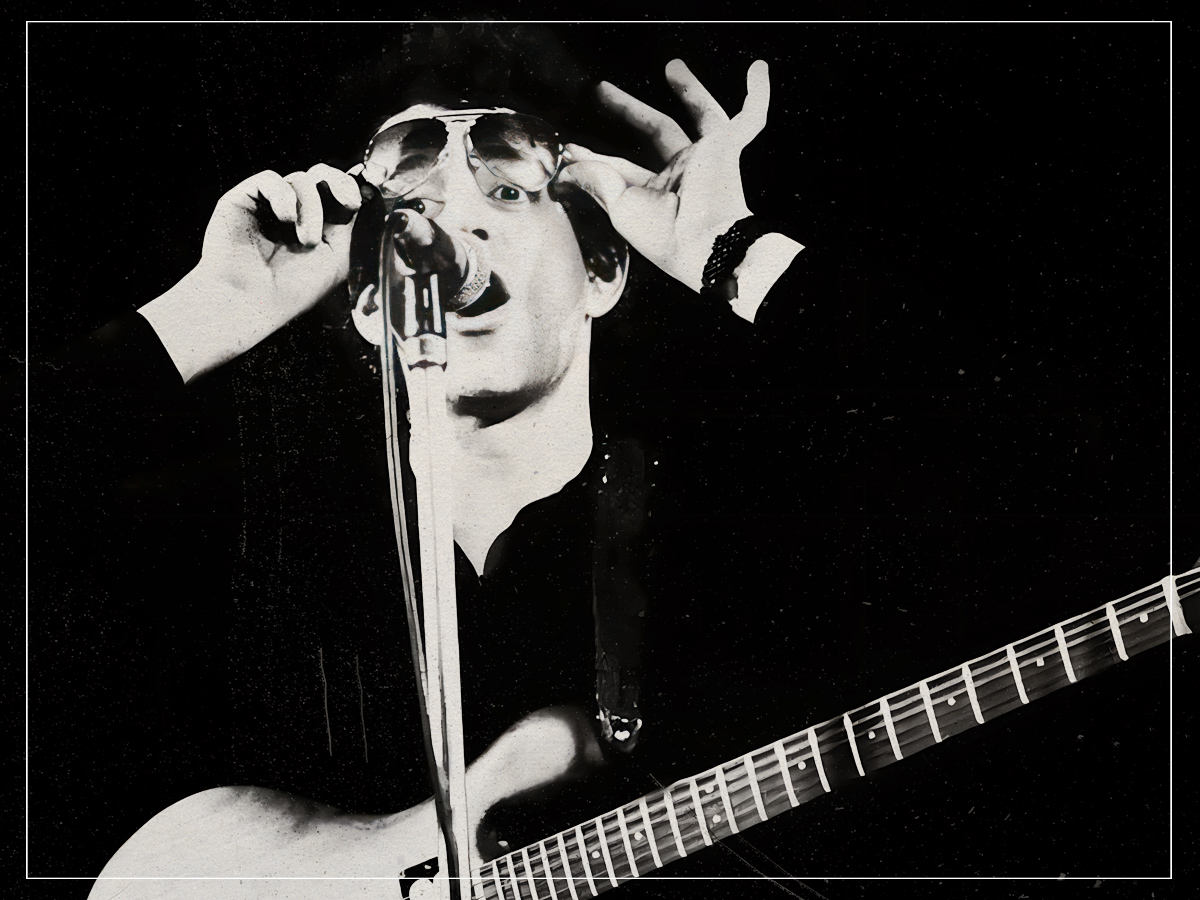
(Credits: Far Out / Alamy)
Thu 11 September 2025 0:00, UK
Strangely enough, acerbic songsmith Lou Reed and greasepaint glam rockers Kiss share some strange overlaps throughout their respective careers.
Ree’d’s dabbling in the metal world formed an essential chapter of his late chapter, his very last album 2011’s Lulu, with thrash pioneers Metallica, a characteristically confounding and jarring clash that teased magic amid the clunky mulch of opposing styles. Yet, Reed had entered the Kiss fold 30 years earlier, penning the three songs ‘Dark Light’, ‘Mr Blackwell’, and ‘A World Without Heroes’ from 1981’s bloated fantasy LP Music from “The Elder”.
An instrumental hand in Kiss’ conceptual blunder is Canadian producer Bob Ezrin. Credited to a broad swathe of rock’s dazzling heights and silliest lows across Dr John and Thirty Seconds to Mars, Ezrin has held a reputation for possessing a sharp knack for shaping a mass of studio material into a gripping coherency. Alongside his longtime production work with Alice Cooper—dubbed “my George Martin” by their frontman—Ezrin assisted with the narrative honing of Pink Floyd’s double opus The Wall and Nine Inch Nails’ epic two-disc The Fragile.
Big conceptual visions were exactly what Reed was after in preparation for his third album. Having already penned story vignettes following memorable characters since his days fronting The Velvet Underground, the success of 1972’s Transformer, featuring the canonical ‘Walk on the Wild Side’ and ‘Perfect Day’, freed up the creatively restless Reed to pursue a new direction. Hanging out at Ezrin’s Toronto home for a preproduction chat, the pair looked back on a number from his eponymous solo debut to inspire his awaited next project.
Released in October 1973, Berlin regaled the bleak, rock opera tale of dysfunctional lovers Jim and Caroline’s deteriorating relationship set against the gloomy backdrop of the city’s Cold War division. With the Wall dividing the former Prussian capital and figuratively cutting across their intimate world, the album swirls downwards into a mess of abuse, drug use, and Caroline’s suicide.
One of the most grimly remembered songs from Berlin is ‘The Kids’. The dour snapshot of social services removing the couple’s children from their care, the backing wails and howls from the titular kids inspired an unsettling rumour that Ezrin had told his two sons, David and Josh, had told them their mother had died to illicit profound anguish. It would be a monstrous thing to do, and thankfully, the record was put straight by journalist Rob Bowman in the liner notes for 1992’s Between Thought and Expression: The Lou Reed Anthology box set.
“According to Ezrin, the story is that he went home and told his seven-year-old son David that he was doing a play in the studio and he needed some kids’ voices to sound scared because their mom was being taken away,” Bowman revealed. “The first few attempts didn’t sound terrifying enough, but on a third, unprompted, his two-year-old joined in and just started screaming. The two children screamed so loud that they distorted the tape”.
Three years later, Ezrin would step up to both production and mixing duties for Kiss’ 1976 album Destroyer. Considered a defining record among the Kiss Army, their fourth LP featured one of Gene Simmons’ themes of sorts with ‘God of Thunder’, often played live after spitting copious amounts of blood. As well as Ezrin’s idea to gift the thumping cut to Simmons over its author, Paul Stanley, Ezrin also sought to add an extra element of spectral sonics by recording Dan and Josh once again with cheap walkie-talkies to create the intended ghostly effect.
While going for spooky escapism over gritty realism, Dan and Josh had struck gold again, gifting Kiss with an essential element of high fantasy phantasmagorical heft which stands proudly aside Ace Frehley’s Norse hammering, heavy riff in ‘God of Thunder’s mythic strut.
Related Topics

